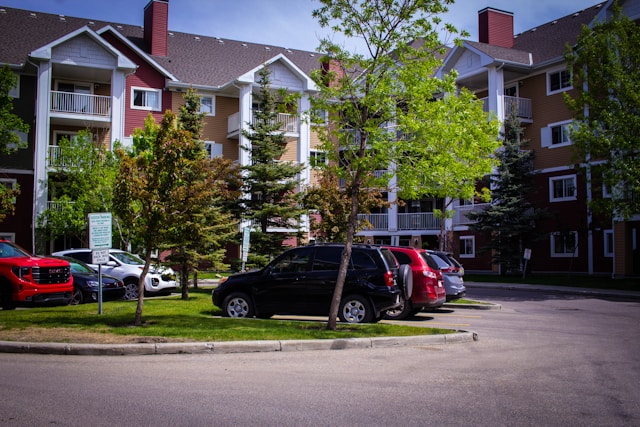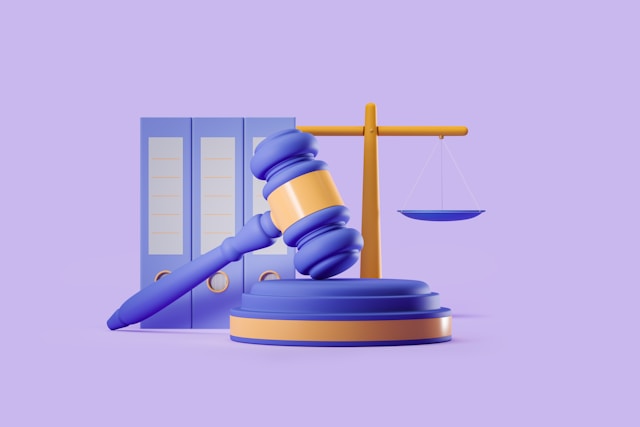If you’re a landlord in Canada—especially in Ontario—you’re not just managing units, you’re managing legal risk, financial oversight, and tenant rights. With one of the most tenant-friendly regulatory frameworks in the country, even experienced landlords can fall into costly traps.
Whether you’re overseeing a condo in Toronto, a duplex in Durham, or a growing portfolio in Peterborough, understanding your compliance responsibilities under the Residential Tenancies Act (RTA) is critical.
At Manage Your Property, we’ve helped landlords recover from fines, LTB hearings, rent losses, and even tenant disputes—simply because they didn’t know what the law required.
Below are the most common mistakes Canadian landlords make—and how to avoid them with the right systems and support.
1. Using Non-Compliant Lease Agreements
Ontario mandates the use of a Standard Lease Agreement, yet many landlords still use outdated, templated, or handwritten forms that miss critical disclosures. In provinces like BC and Alberta, specific lease clauses and termination language are also regulated.
Mistake: Using a generic PDF or informal lease with unclear terms.
Solution: We use provincially approved, legally enforceable lease templates and ensure every tenant signs a complete, compliant agreement during onboarding.
If you’re managing multiple doors or considering self-management, start with our article on managing a multi-unit condo property to understand what’s at stake when lease controls fall short.
2. Requesting Illegal Deposits or Fees
In Ontario, landlords can only request last month’s rent. You cannot ask for a damage deposit, cleaning fee, or “key fee,” even if the tenant agrees verbally. Provinces like Quebec and BC have their own deposit limitations, too.
Mistake: Charging a $300 damage deposit “just in case.”
Solution: We collect only what’s legally permitted and protect your property through documentation, not illegal holdbacks.
Our full-service rental management includes detailed move-in/out inspections, so you’re protected—without violating tenant rights.
3. Incorrect Rent Increases
Each province sets rent increase limits. In Ontario, it’s 2.5% for 2025 (unless exempt), and you must provide 90 days’ notice using the government’s Form N1.
Mistake: Emailing a tenant that their rent is going up 5% next month.
Solution: We handle all legal rent increase notices, issue documentation on schedule, and ensure your increases comply with LTB guidelines.
Want to ensure your financial controls align with compliance? See how we manage bank statement reconciliation for property owners.
4. Entering the Unit Without Proper Notice
Even if the tenant is late on rent or you’re preparing to sell, you must provide 24 hours’ written notice before entering their unit (in most provinces).
Mistake: Letting a plumber in without informing the tenant.
Solution: We issue legal entry notices, track them, and notify tenants through a digital portal—ensuring privacy compliance and documentation.
5. Mishandling Lease Terminations or Evictions
Evictions in Canada follow strict procedures. Whether for non-payment, personal use, or breach of rules, you must use the correct legal forms and timelines.
Mistake: Asking a tenant to leave via text message.
Solution: We manage all notices (Form N4, N5, N12, N11), handle LTB filings, and ensure deadlines and documentation are watertight.
Want to know how this fits into your legal responsibility as a landlord? Read our full blog on legal responsibilities of property management companies in Canada.
6. Failing to Provide Rent Receipts
All tenants in Ontario and most provinces have a right to request rent receipts. Landlords must issue them free of charge and maintain records for up to 12 months.
Mistake: Relying on e-transfer screenshots or verbal confirmations.
Solution: Our clients receive monthly statements, and tenants receive formal receipts—automated and fully documented.
7. Delaying Maintenance and Repairs
Under Canadian tenancy laws, landlords must keep properties in habitable, safe, and well-maintained condition. Ignoring even small issues can lead to rent abatements or formal complaints.
Mistake: Ignoring a tenant’s repeated request for a broken stove or leak.
Solution: We log every maintenance request, dispatch verified contractors, and keep digital records—ensuring your compliance and your property’s value.
8. Refusing Sublets or Assignments Without Cause
Tenants may legally assign or sublet a lease in most Canadian provinces, provided they follow proper channels. As a landlord, you can’t arbitrarily refuse a qualified applicant.
Mistake: Refusing a sublet because you “don’t like the idea.”
Solution: We screen proposed subtenants, update lease records, and ensure RTA-compliant assignment documentation is in place.
9. Discriminatory Ads or Screening Practices
It is illegal in Canada to discriminate against tenants based on race, gender, family status, disability, age, or income source. This includes what you say in ads and how you evaluate applications.
Mistake: Posting “adults only” or “must be employed full time.”
Solution: Our screening processes are Human Rights Code-compliant, using credit reports, income-to-rent ratios, and rental history—no biases, no risks.
10. Incomplete Record-Keeping
The most avoidable mistake? Not documenting decisions, notices, communications, and maintenance history. If a dispute arises, your word isn’t enough without paperwork.
Mistake: Relying on your memory or email threads.
Solution: We provide secure access to digital leases, LTB forms, payment logs, and communication archives—fully organized and accessible to you 24/7.
BONUS: Ontario Landlords – Watch for These High-Risk Gaps
If you’re operating in Ontario, your property manager should also help you avoid:
- Improper status certificate handling (for condo rentals)
- Missed AGI application deadlines
- Unaddressed seasonal risks for snowbirds or vacant units
Our localized services cover all of Ontario, including Toronto, Etobicoke, Mississauga, and the Kawarthas, ensuring you’re always one step ahead of provincial compliance.
Final Thoughts: Compliance Isn’t Just the Law—It’s Smart Business
Non-compliance doesn’t just cost you in fines—it damages tenant relationships, delays eviction processes, increases vacancy rates, and makes you vulnerable to LTB rulings. And in Canada’s regulatory landscape, “I didn’t know” isn’t a valid defence.
At Manage Your Property, our proactive compliance systems are built to protect you. From legally structured leases to LTB filing, tenant notices, monthly financials, and year-round maintenance—we turn risk into structure and confusion into control.
Want to protect your property and grow your rental business legally and efficiently? Book a consultation today to learn how we help Canadian landlords stay compliant, profitable, and hands-off.





